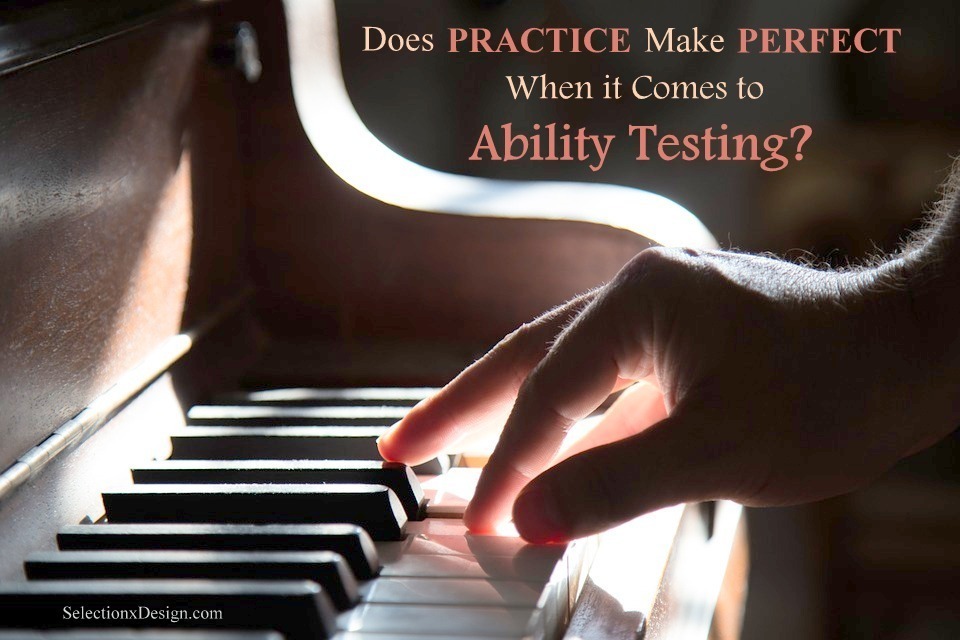One of our clients, Rachel, recently shared the excellent news that she had received very high scores on her verbal and numerical reasoning tests. She will be progressing to the next stage of selection. Over the past several months Rachel did a lot of preparation and practice work prior to ability testing. It seems to have paid off!
A few interesting questions about ability testing arise related to this: Has Rachel’s ability level improved to the extent that she can generally expect top scores in the future? Or, is she just getting better at taking these kinds of tests? Can this work for everyone?
Can Cognitive Abilities Change?
The chance for ability to increase rests on cognitive abilities being able to change. This is consistent with present day views on the development of intellect. Psychologists have concluded that abilities are the outcome of a person’s propensity for development combined with influences from the environment. You can alter aspects of your own environment to build specific cognitive skills and abilities. For example, by regularly examining, interpreting and evaluating numerical information presented on charts and tables, you can improve your numerical reasoning ability. Similarly, you can improve your mechanical reasoning ability by regularly working with electric circuits, pulleys, levers and weights. These kinds of activities are capable of providing real, or true, increases in your ability levels. They will be reflected in improved scores on ability tests now and in the future.
Rachel could well have strengthened her skills through acquiring familiarity and knowledge over several months. If so, there is a good chance she will continue to score at top levels in the future.
Practice and Prepare Prior to Psychometrics Testing
Practicing and preparing for psychometric testing can do more than strengthen cognitive skills and abilities. Learning about different kinds of test questions and instructions can help you:
- Understand implications of different test instructions, so you know how to tackle the questions.
- Know when and how to make guesses at answers and when it’s best to leave blanks.
- Develop a sense of pacing or timing so you can efficiently complete as many questions as possible.
- Develop effective approaches to coming up with your answers – many practice tests offer feedback.
For an inexperienced test taker, a lack of know-how can result in a test score that is lower than he or she is capable of achieving. Those familiar with Classical Test Theory may recognise a lack of practice or familiarity with test taking as possible sources of error, detracting from accurate measurement of a true ability.
As you become familiar with the types of questions you might encounter in psychometric tests, you may develop helpful testing strategies. In addition, success with practice tests can improve your self-confidence. You’ll likely feel less anxious if you know ahead of time what to expect during the test. Practice can improve your approach to testing, resulting in better performance.
So back to Rachel: Most likely her high test scores reflected both an increase in actual ability as well as an improved approach and attitude towards testing. Consistent with this, to improve test scores we recommend that you regularly engage in activities that will give you experience relevant to the kinds of abilities you will be tested on. With this, practice to gain experience with different types of test formats as much as you can.
Of course a good test score is something to celebrate, no matter what the reason!
Happy testing.
__________
Want to know more about ability testing and how ability tests work? Selection by Design’s Test User: Occupational, Ability training will teach you about the effects of practice, familiarity and environmental conditions on test scores. You’ll learn how to take such factors into account when evaluating test results.
We also offer assistance in preparing for psychometric testing. Give us a call at +353(0)86 3927638 to learn how we can help.


